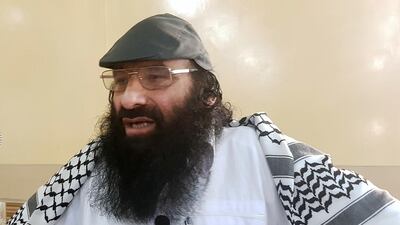A Kashmiri militant commander said on Sunday that Pakistan should send troops to protect the people of India-controlled Kashmir if the UN did not send peacekeepers after New Delhi revoked its autonomy last month.
“It’s binding upon the armed forces of Pakistan to enter India-occupied Kashmir to militarily help the people of the territory,” said Syed Salahuddin, who heads an alliance of more than a dozen groups fighting Indian rule in Kashmir.
His comments underline growing domestic pressure on Pakistan’s Prime Minister, Imran Khan, to take action after India stripped Kashmir of its special status on August 5.
Mr Khan has so far focused on a global diplomatic campaign condemning India’s actions.
“In these testing times mere diplomatic and political support is not going to work,” Mr Salahuddin told a gathering of hundreds in Muzaffarabad, capital of Pakistani-controlled Kashmir.
On stripping Indian-controlled Kashmir of its special status, New Delhi blocked the region’s right to make its own laws and let non-residents buy property there.
The government said the reform would lead to Kashmir’s development to the benefit of all.
But the move angered many residents, which has been under a security clampdown ever since with phone lines, internet and TV networks blocked and restrictions on movement and assembly.
India and Pakistan both rule parts of Kashmir while claiming it in full.
Islamabad this year announced it was cracking down on militant groups amid global pressure after a group launched a deadly attack on paramilitary police in India-controlled Kashmir in February.
Mr Salahuddin said “harsh steps” taken by the Pakistani government had hindered his group’s ability to take action.
“These steps have restrained us from launching armed resistance against India in a move that is unfair,” he said.
Officials in Pakistan say the government is trying to show it is acting responsibly. They have rejected suggestions that they could be tempted to use militants as proxies against India.
Mr Salahuddin, who is originally from Badgam town in Indian-administered Kashmir, was placed on a list of global terrorists by the US in 2017, a move Pakistan’s government at the time called unjustified.

